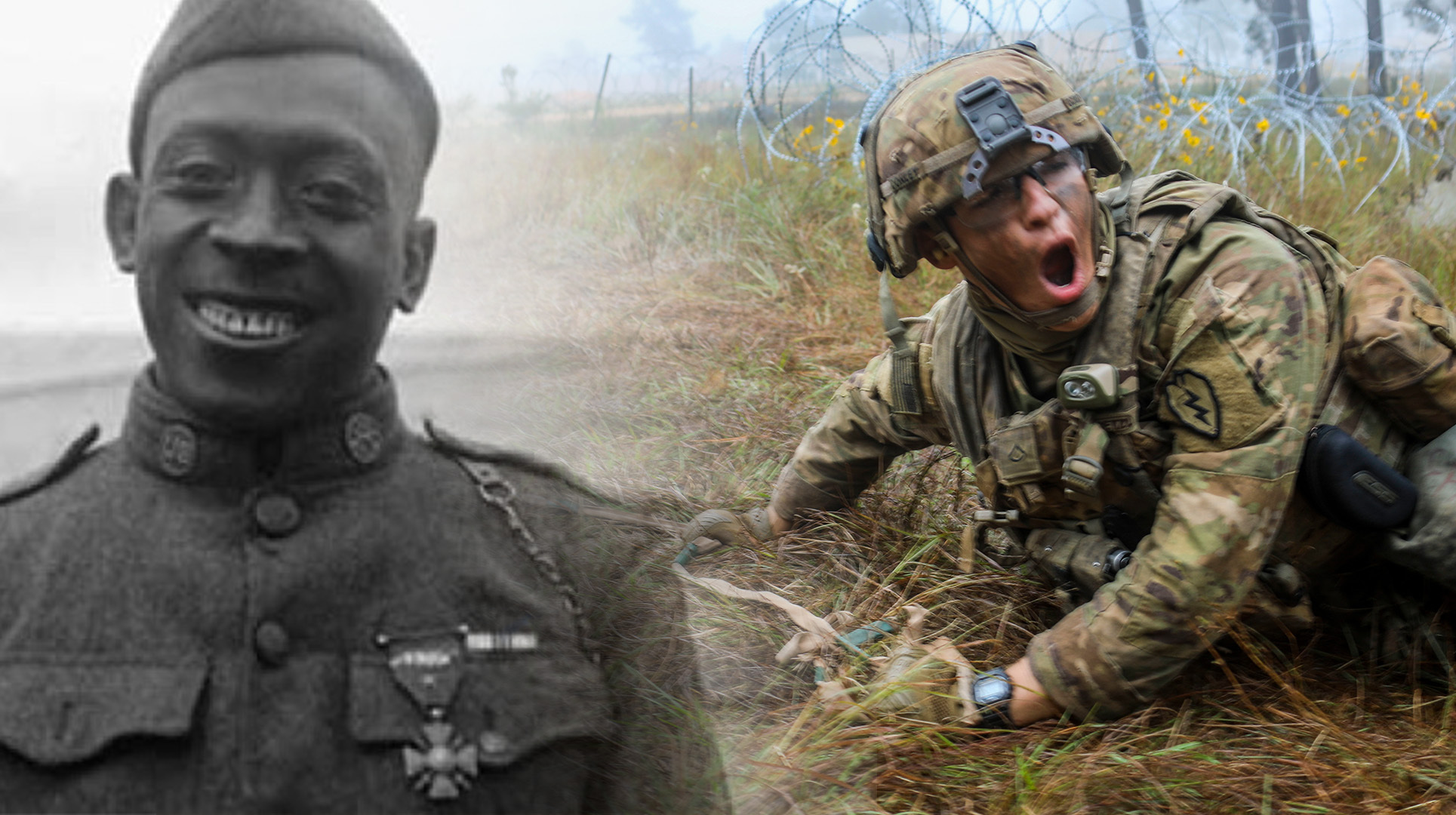

An Army base that might elicit memories of hot, swampy field training has a new name. Fort Polk, Louisiana is now officially Fort Johnson.
The base was renamed at a ceremony on June 13. Fort Johnson is one of nine installations being redesignated this year, as the Army removes the names of Confederate officers from its bases, streets, and buildings. Some of the Army’s most prominent bases have already been renamed, including Fort Liberty, North Carolina from Fort Bragg earlier this month and Fort Moore, Georgia, formerly Fort Benning, which was renamed on May 11.
The new namesake, William Henry Johnson, was a soldier in World War 1, one of many Black troops who would only receive the Medal of Honor decades after his actions in battle.
Subscribe to Task & Purpose Today. Get the latest military news and culture in your inbox daily.
Born in North Carolina in 1892, Johnson grew up in Albany, New York, and enlisted in the Army on June 5, 1917. Assigned to the segregated 369th Infantry Regiment, he arrived in France assigned to perform manual labor, as the Army kept Black soldiers out of combat.
But Johnson ended up on the frontlines when his unit was reassigned to a French command. On May 15, 1918, Johnson and another soldier were spending the night at a trench line outpost when they were attacked by a German raiding party of at least a dozen soldiers. Johnson threw grenades and fired his rifle until he ran out of ammunition, and then used it as a club. When he saw a wounded US soldier being carried away by the enemy, Johnson drew his knife.
“Wielding only a knife and gravely wounded himself, Private Johnson continued fighting, defeating the two captors and rescuing the wounded soldier. Displaying great courage, he continued to hold back the larger enemy force until the defeated enemy retreated leaving behind a large cache of weapons and equipment and providing valuable intelligence,” reads his Medal of Honor citation.
Johnson was awarded the French Croix de Guerre avec Palme. Newspaper stories about him dubbed Johnson the “Black Death” and Theodore Roosevelt declared Johnson to be one of the bravest soldiers of the war. But Johnson received little in the way of any tangible accolades.
Although badly wounded in the trench fight, he did not receive the Purple Heart, and his disability insurance was denied after the war. When he spoke out about the racism he faced, the Army cut off his public speaking engagements. He died in 1929.
No Black soldiers were awarded the Medal of Honor during World War I in the decades after, but the Pentagon launched a review of awards for Black World War I soldiers in the 1990s. Freddie Stowers was approved for the award in 1991 while Johnson was posthumously awarded a Purple Heart in 1996 and the Medal of Honor in 2015.
Tiger Land and JRTC
Established as Camp Polk in 1941, Fort Johnson has long been a training hub, most of it remembered with little affection by generations of soldiers. The base trained tens of thousands of troops during World War II and more than a million more prepared for the jungles of Vietnam at the base’s infamous, swampy “Tiger Land.”
And, of course, for many soldiers, the name “Polk” is synonymous with “sucks.”
The base is deep in southern Louisiana, far from any large town. In the summer, it’s hot and humid. In the winter, it’s freezing. It’s in the middle of nowhere. And that’s if you’re stationed there. In recent decades, Polk has been home to the Joint Readiness Training Center, where large maneuver units are put through their paces on the base’s humid, muddy ranges for about a month at a time in pre-deployment or field training.
Basically, the National Training Center at Fort Irwin, California, but maybe it might rain all day.
If you ask social media, you might find some who actually enjoy living there. But for most, it’s not exactly Hawaii. A recent Reddit thread titled “Things To Do At Fort Polk” received these top replies:
“Ask if there’s any TDY to Fort Irwin.”
“Dream of being someplace else.”
“Cry.”
“I heard the Walmart is nice.”
“Sorry kid but you got the short straw.”
To which we can only add: watch out for the tarantulas.
The latest on Task & Purpose
- Navy fires commander of destroyer USS Stout
- Wagner mercenaries capture Russian brigade commander
- Marines want to use Tomahawks to sink enemy ships from 1,000 miles away
- Marine Corps names new top enlisted leader
- Marine Corps drops charges against lance corporal who spent 113 days in the brig